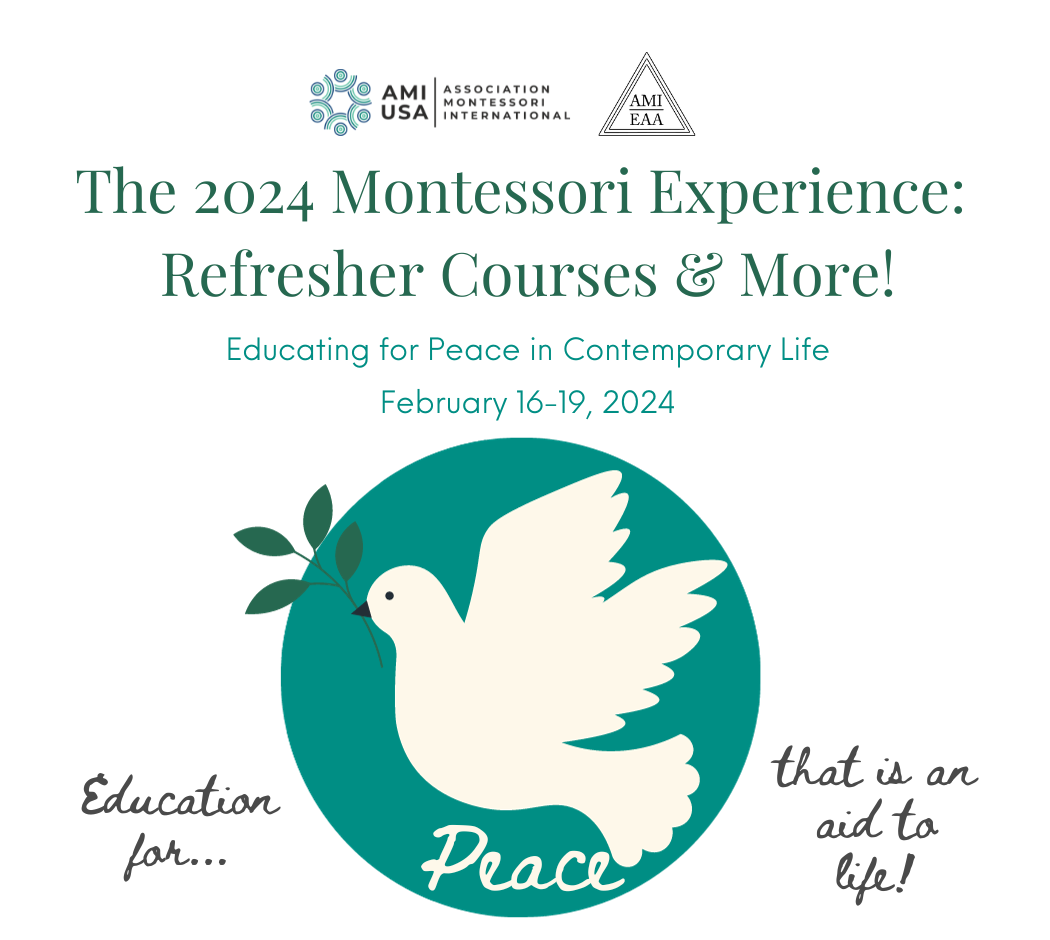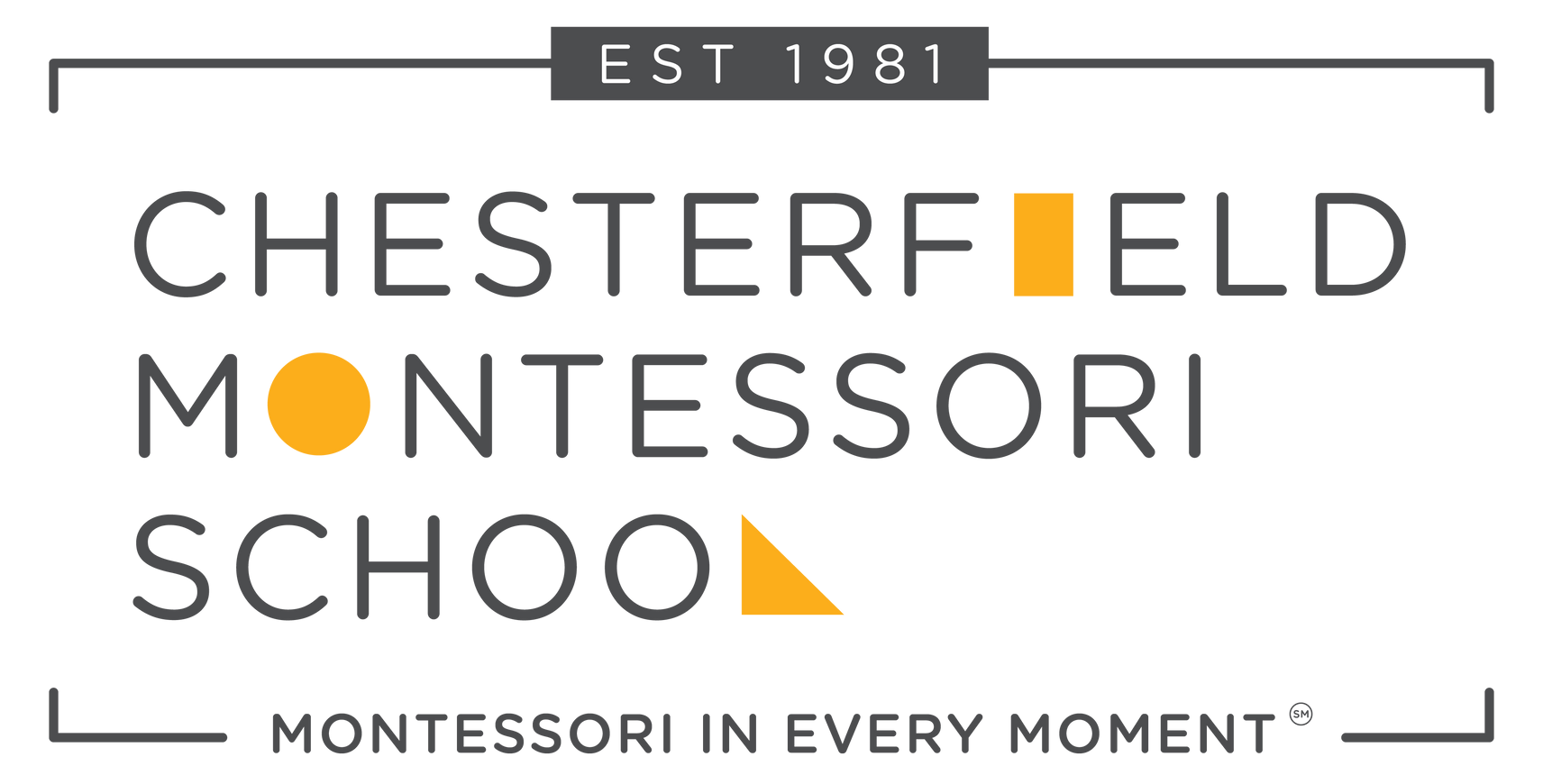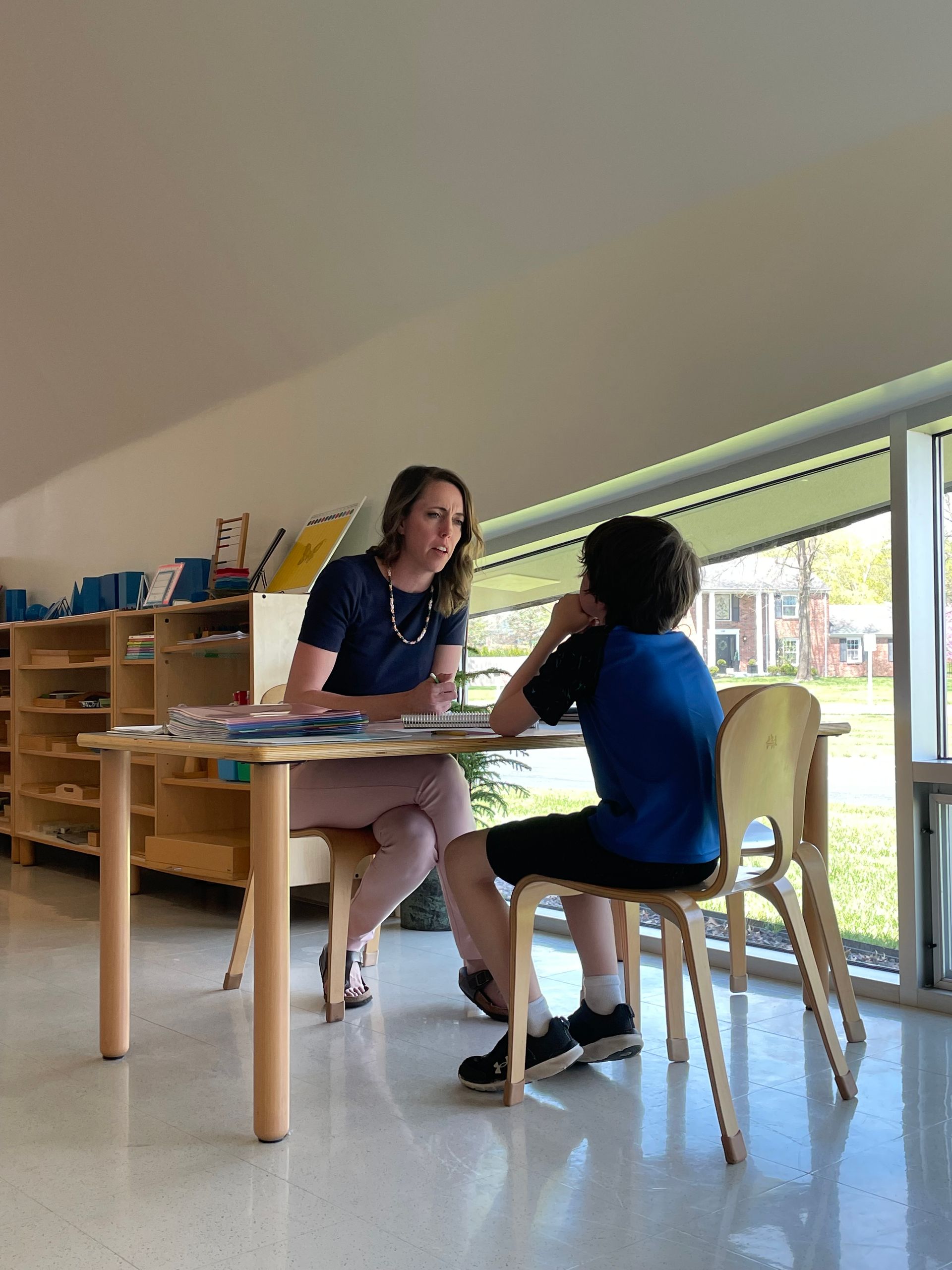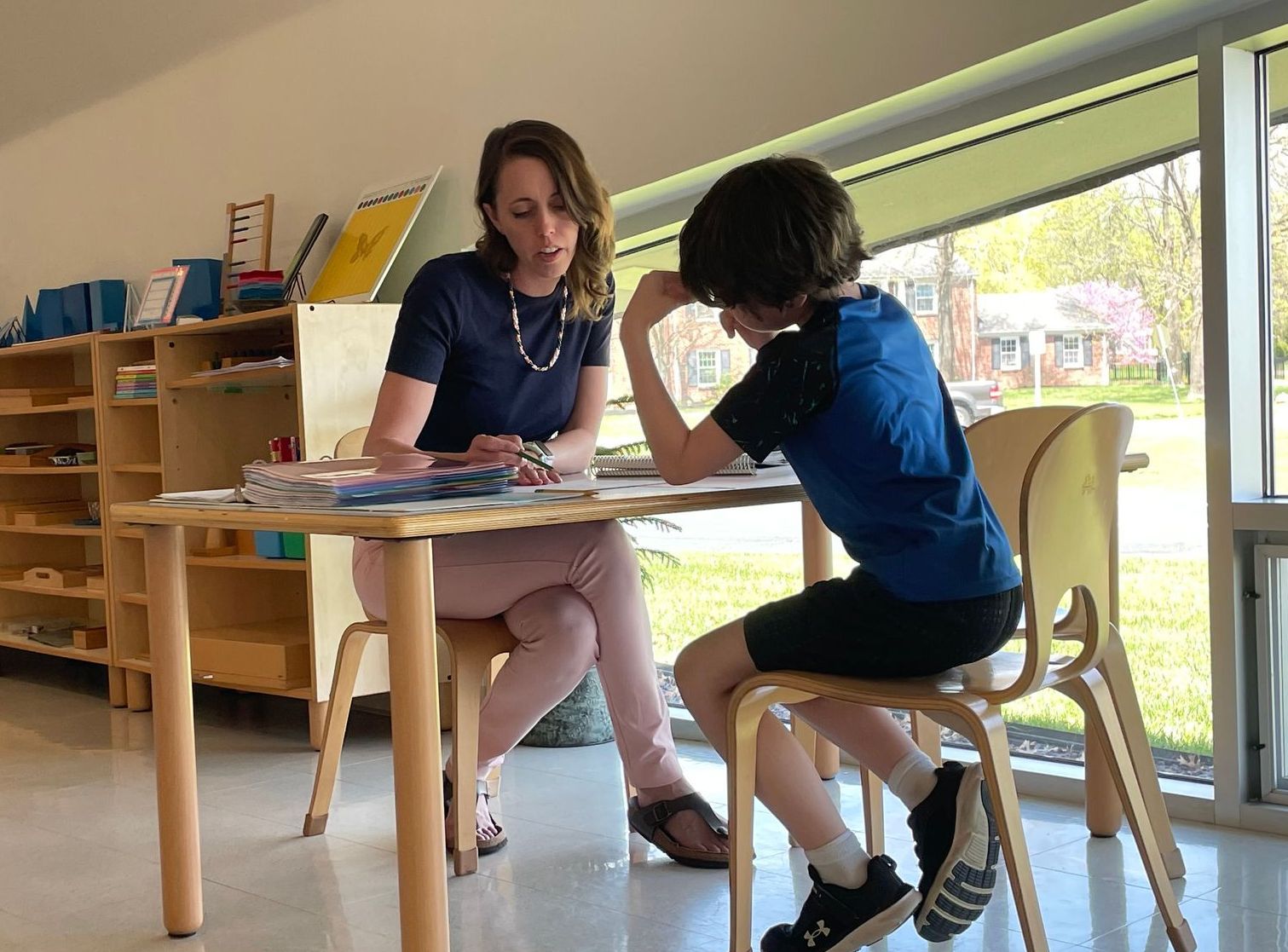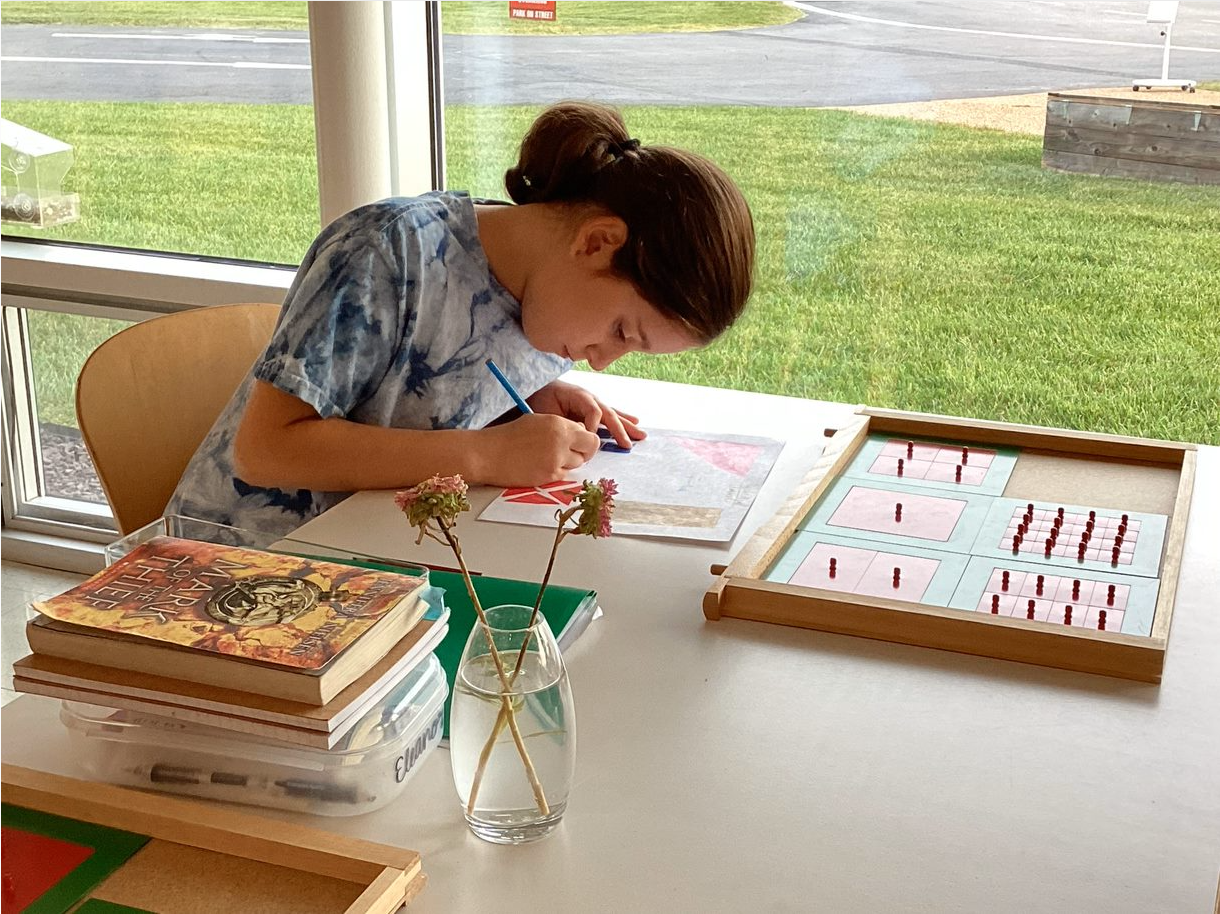Maria Montessori developed a way to offer freedom to children that is balanced with responsibilities by allowing the child to decide what they are ready and willing to learn in a safe and structured environment. An essential part of this in the Elementary classroom is through student work conferences.

Providing students with work conferences allows them to stay on track, get organized, as well as allow the student and teacher to see exactly where they are in terms of progressing towards their goals. The purpose is to empower students to take ownership in their own education, all while utilizing open and honest dialogue.
Work Journals
All of our Elementary students use a Work Journal, or a notebook in which they keep track of how they use their time each day at school. This becomes a documented record of all they’ve completed. Work Journals easily let their teacher know what lessons and presentations a child has had, and, most importantly, when they followed up on those presentations.
It’s a tool with which they can measure their productivity. If the child and the teacher are seeing a “lack of productivity” in a certain subject, they can assess together the reasons for this. Is it because the work was extra challenging and they need a lesson review, or does the child admit that they were talking with friends and became distracted? Whatever it may be, from there a plan can be made to set that child up for success.
Structure of Student Work Conferences
During student-teacher conferences, the teacher is asking, “What have you accomplished?” It’s not the time to check work in detail or decipher what they’ve done with all their time; rather, it’s about guiding the child to think critically about their own education experience.
What’s important is for the child to realize on their own how they feel about their work endeavors. Do they feel proud of all they've accomplished, do they determine they're ready for more challenging work, or do they come to the conclusion that they need help managing their time? The teacher will simply nod their head and ask them about each day without passing judgment. This regular routine helps the child realize how they can better spend their time and reinforces that their teacher cares about them.
Sampling of questions the teacher might ask during student conferences:
- What did you plan for yourself this week?
- What are some of your goals?
- What works do you want to get done?
- How do you feel about the work you’ve already done?
- Are there any lessons you're interested in getting soon?
- What can you do today and this week that will set you up for success?
They might talk to the child about general things, like the project they’re currently involved in or how they’re doing socially, but what is essential is that the guide looks at their work journal and discusses what is there.
What they aren’t doing is saying, “I think it’s great you were so productive and got this many math problems done.” They are asking what the child thinks about their work endeavors, thus allowing them to assess their own productivity. The student will still be the ultimate decider of when and how they do their work, but they’ll use their teacher as a resource for guiding and setting necessary boundaries for themselves.
Once they're adults, they'll need to use their time wisely, so what a gift we’re giving children to start developing their time management skills at such a young age!
Relationship Building
In a traditional schooling model, it’s wouldn't be easy for the teacher to meet one on one with their whole class regularly. In Montessori, however, we value this structured time to discuss with students what they're understanding, what lessons they need, and how they're feeling in general.
In a Montessori classroom, there are many people and between each person, relationships develop. Dr. Montessori realized that there needs to be an established culture that says each person in here is worthy and valuable. Conferences are one way the child knows: my teacher cares about me, they’ll be looking at my work, and I can count on them to provide the guidance and support I need to succeed.
All in all, students are being empowered to think critically, advocate for themselves, and have meaningful, productive conversations with peers and adults. Dr. Montessori’s methods can be summarized as one thing: the development of the human being. As she stated, “the education of even a small child, therefore, does not aim at preparing them for school, but for life."
